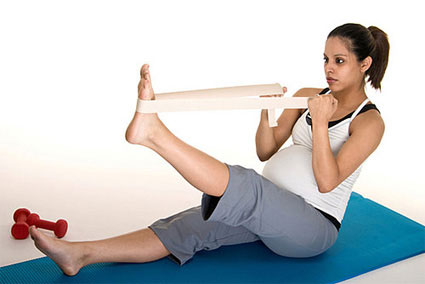Eating well during pregnancy is the mantra for a successful and healthy pregnancy. Find out about pregnancy diet and healthy eating habits during pregnancy. The right nutrition is one of the most vital elements of a successful and healthy pregnancy. Not only this helps your body to be nourished and replenished, but also paves the way for a comfortable and safe pregnancy and you will have a healthy bundle of joy in your arms after nine months! Pregnancy is surely a natural state when a woman conceives, but it is a tough challenge for the body to meet the requirements of nourishing the growing foetus and holding the stamina intact. So, treat yourself with a healthy diet that takes care of all your nutritional requirements, for your own system as well as for the baby. In this articleThe Pregnancy Diet in BriefIncluding Variety of Food ElementsEating Fibre Rich FoodMonitoring Vitamin and Mineral IntakeTaking Enough of CalciumHave Green and Leafy VegetablesInclude Vitamin C in Your DietHave Foods Rich in Folic AcidInclude Vitamin A in Your DietThe Pregnancy Diet in Brief As mentioned above eating well during pregnancy is absolutely essential. An ideal pregnancy diet is a very simple concept; it is simply a chart incorporating the prime features of healthy eating. There is nothing out of the blue, just the following the ideal habits and taking care of supplements that are suggested by the doctor after monitoring your condition and status. Empty calories are always to be avoided. Check that the nutritional requirements are met in your regular diet and it is always in the desired quantity. Eating Well During Pregnancy Here are some tips on how to eat well during pregnancy: Including Variety of Food Elements Incorporate a wide variety of food elements in your regular diet, so that you do not tend to get bored. It is generally recommended that your daily diet should include 6 to 11 servings of whole wheat grains or cereals, 2 to 4 servings of fruits, 2 to 4 servings of veggies, 4 servings of dairy items and three servings of protein rich food like fish, meat and eggs. Eating Fibre Rich Food Eat food rich in fibre content. They are healthy, especially during pregnancy when most women experience some common pregnancy issues like constipation and indigestion or inflated tummy. Avoid white flour and go in for the whole wheat flours in your breads and pastas and have lots of cereals. Monitoring Vitamin and Mineral Intake The vitamin and mineral intake should be well maintained. Doctors advise a prenatal vitamin supplement so as to ensure that your body is replenished with vitamin regularly. So make sure that you take the recommended dose without fail. Taking Enough of Calcium Take in enough calcium. They are adequately found in dairy products. An ideal pregnancy diet must have at least 1000 to 3000 mg of calcium on a daily basis. If you are allergic to lactose, you can opt for soy milk and other soy products. Have Green and Leafy Vegetables Food items like spinach, green leafy vegetables along with other iron supplements that are recommended by your doctor should be a part of your daily diet. Make sure that you have no less than 27 mg of iron every day. Include Vitamin C in Your Diet Have enough vitamin C in your diet through a wide variety of citrus fruits, berries, broccoli, cauliflower, tomatoes, green pepper, Brussel sprouts and mustard greens. You must take in at least 70 mg of vitamin C every day. Have Foods Rich in Folic Acid Your regular diet must include at least one strong source of folic acid. It can come from legumes, green leafy veggies or veal. A minimum of 0.4 mg of folic acid regularly effectively ensures the safety of your pregnancy and prevents the possibility of the baby being born with neural defects. Include Vitamin A in Your Diet There must be at least one good source of vitamin A in the regular diet. They are abundantly present in apricot, carrot, beet green, cantaloupe, pumpkin, sweet potato, squash and spinach. Make sure that you stay away from all unhealthy habits like smoking, alcohol and caffeine. Junk food, fats and sweeteners should be avoided. Check that the cholesterol intake is low or negated completely. All these simple healthy eating habits will ensure that your health is good, stamina is high and fitness levels are high; it also helps to prevent premature delivery or miscarriages.
Eating well during pregnancy is the mantra for a successful and healthy pregnancy. Find out about pregnancy diet and healthy eating habits during pregnancy. The right nutrition is one of the most vital elements of a successful and healthy pregnancy. Not only this helps your body to be nourished and replenished, but also paves the way for a comfortable and safe
pregnancy and you will have a healthy bundle of joy in your arms after nine months!
Pregnancy is surely a natural state when a woman conceives, but it is a tough challenge for the body to meet the requirements of nourishing the growing foetus and holding the stamina intact. So, treat yourself with a healthy diet that takes care of all your nutritional requirements, for your own system as well as for the baby.
The Pregnancy Diet in Brief
As mentioned above eating well during pregnancy is absolutely essential. An ideal pregnancy diet is a very simple concept; it is simply a chart incorporating the prime features of healthy eating. There is nothing out of the blue, just the following the ideal habits and taking care of supplements that are suggested by the doctor after monitoring your condition and status. Empty calories are always to be avoided. Check that the nutritional requirements are met in your regular diet and it is always in the desired quantity.
Eating Well During Pregnancy
Here are some tips on how to eat well during pregnancy:
Including Variety of Food Elements
Incorporate a wide variety of food elements in your regular diet, so that you do not tend to get bored. It is generally recommended that your daily diet should include 6 to 11 servings of whole wheat grains or cereals, 2 to 4 servings of fruits, 2 to 4 servings of veggies, 4 servings of dairy items and three servings of protein rich food like fish, meat and eggs.
Eating Fibre Rich Food
Eat food rich in fibre content. They are healthy, especially during pregnancy when most women experience some common pregnancy issues like constipation and indigestion or inflated tummy. Avoid white flour and go in for the whole wheat flours in your breads and pastas and have lots of cereals.
Monitoring Vitamin and Mineral Intake
The vitamin and mineral intake should be well maintained. Doctors advise a prenatal vitamin supplement so as to ensure that your body is replenished with vitamin regularly. So make sure that you take the recommended dose without fail.
Taking Enough of Calcium
Take in enough calcium. They are adequately found in dairy products. An ideal pregnancy diet must have at least 1000 to 3000 mg of calcium on a daily basis. If you are allergic to lactose, you can opt for soy milk and other soy products.
Have Green and Leafy Vegetables
Food items like spinach, green leafy vegetables along with other iron supplements that are recommended by your doctor should be a part of your daily diet. Make sure that you have no less than 27 mg of iron every day.
Include Vitamin C in Your Diet
Have enough vitamin C in your diet through a wide variety of citrus fruits, berries, broccoli, cauliflower, tomatoes, green pepper, Brussel sprouts and mustard greens. You must take in at least 70 mg of vitamin C every day.
Have Foods Rich in Folic Acid
Your regular diet must include at least one strong source of folic acid. It can come from legumes, green leafy veggies or veal. A minimum of 0.4 mg of folic acid regularly effectively ensures the safety of your pregnancy and prevents the possibility of the baby being born with neural defects.
Include Vitamin A in Your Diet
There must be at least one good source of vitamin A in the regular diet. They are abundantly present in apricot, carrot, beet green, cantaloupe, pumpkin, sweet potato, squash and spinach.
Make sure that you stay away from all unhealthy habits like smoking, alcohol and caffeine. Junk food, fats and sweeteners should be avoided. Check that the cholesterol intake is low or negated completely. All these simple healthy eating habits will ensure that your health is good, stamina is high and fitness levels are high; it also helps to prevent premature delivery or miscarriages.






























